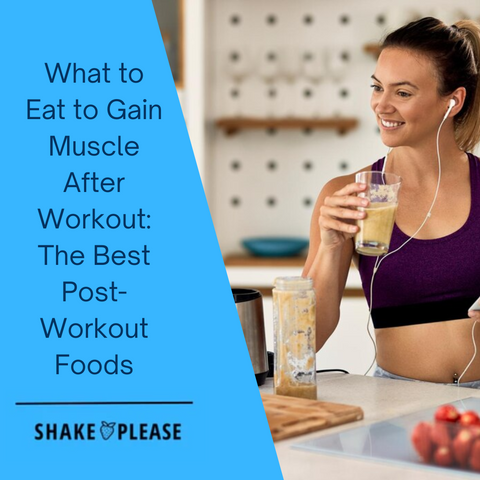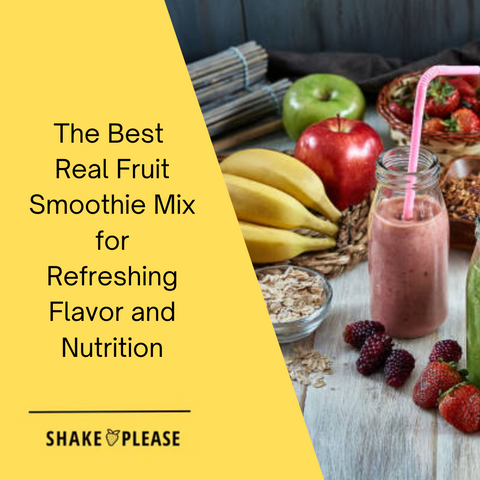
Understanding Muscle Growth and Nutrition
Building muscle requires more than just lifting weights—it’s about fueling your body with extra calories, more protein, and the right nutrients to build muscle again. A well-structured and balanced diet plays a crucial role in muscle repair, recovery, growth, and gain. Consuming enough protein and maintaining a calorie surplus are two key factors in achieving muscle-building goals.
The Importance of Protein for Muscle Growth
Protein is the foundation of muscle growth and repair. When you exercise or work out, tiny tears occur in your muscle fibers, and protein helps rebuild them, making muscles stronger and more defined over time.
-
Protein Sources: High-quality protein can be found in lean meats, eggs, dairy products, fish, whole grains, beans, and lentils. These sources provide essential amino acids necessary for muscle repair.
-
Amino Acids and Muscle Synthesis: Amino acids are the building blocks of protein and play a key role in muscle protein synthesis, the process by which muscles rebuild and grow.
-
Consuming Enough Protein: Eating enough protein consistently ensures your body has the necessary nutrients to recover from workouts and continue building muscle mass.
Calculating Your Calorie Needs for Muscle Building
To eat and exercise to gain muscle mass effectively, you need to eat and exercise to be in a calorie surplus, meaning you what to eat to gain muscle after workout, and consume more calories than you burn. This surplus provides the energy required for muscle growth.
-
Protein Intake: Aim to consume 1.4 to 2.2 grams of protein per kilogram of body weight per day to support muscle building.
-
Caloric Needs: Your daily caloric intake depends on various factors, including your age, weight, height, and activity level. Calculating your Total Daily Energy Expenditure (TDEE) can help determine how many calories you need to consume for muscle growth.
-
Nutrient Balance: While protein is essential, a well-rounded diet should also include healthy fats and complex carbohydrates to provide sustained energy and support overall performance.
By focusing on proper nutrition and maintaining a structured meal plan, you can optimize muscle growth and fat, and achieve your overall health body weight, and fitness goals more efficiently.
Is It Healthy To Add Protein Powder To Smoothies?
Post-Workout Nutrition for Muscle Mass
Consuming the right amount dietary protein saturated fat, calories and other nutrients after a workout is essential for muscle recovery, health and growth. The post-exercise period, often referred to as the anabolic window, is the optimal time to refuel your body with protein and carbohydrates to build muscle again.
-
Eat within 30-60 minutes post-workout to maximize muscle repair and replenish glycogen stores.
-
Aim for a 1:1 or 1:2 protein-to-carb ratio in your post-workout meal. This helps restore energy levels while supporting muscle protein synthesis.
-
Liquid nutrition, such as a protein smoothie, can be absorbed faster than solid food, making it a great option when you’re on the go.
-
Ensure your post-workout meal includes a lean protein source (like chicken, eggs, or plant-based protein) and complex carbohydrates (such as whole grains or fruit).
Best Post-Workout Foods for Muscle Growth
Refueling after a workout is crucial for muscle repair, recovery exercise performance, and growth. A well-balanced post-workout meal should provide protein and include high-quality protein to support muscle synthesis and complex carbohydrates to have athletes replenish glycogen stores. Adding nutrient-dense foods and protein-packed smoothies ensures a quick and effective recovery from training.
Eggs
-
A complete protein source with all nine essential amino acids needed for muscle recovery.
-
One large egg contains 7 grams of protein, making it a great addition to a post-workout meal.
-
Easy to prepare—boiled, scrambled, or blended into a smoothie for an extra protein boost.
Ricotta Cheese
-
Provides 14 grams of protein per half-cup serving, supporting muscle repair and strength gains.
-
Contains whey protein, which is quickly absorbed by the body for optimal recovery.
-
Pairs well with fruit-based smoothies, offering a creamy texture and additional protein.
Salmon
-
Packed with omega-3 fatty acids, which reduce inflammation and enhance muscle recovery.
-
Delivers 22 grams of high-quality protein per 3.5-ounce serving, supporting muscle rebuilding.
-
Combine with a nutrient-dense smoothie containing spinach, banana, and almond milk for a balanced recovery meal.
Cottage Cheese
-
A great slow-digesting protein, providing 28 grams of protein per cup to aid muscle repair overnight.
-
Rich in casein protein, which supports sustained muscle recovery.
-
Perfect to blend into a smoothie with frozen berries and protein powder for a post-workout snack.
Sweet Potatoes
-
A top source of complex carbohydrates, helping replenish glycogen stores after intense workouts.
-
Contains fiber, vitamin A, and potassium, essential for muscle function and recovery.
-
Pairs well with a high-protein smoothie, such as a ShakePlease Chocolate Peanut Butter Banana Smoothie, to add both carbs and protein to recovery meals.
High-Protein Smoothies for Quick Recovery
-
Strawberry Banana Protein Smoothie – A blend of real strawberries, bananas, and protein, perfect for post-workout recovery.
-
Pineapple Berry Protein Smoothie – A refreshing mix of pineapple, blueberries, and protein to replenish energy stores.
-
Chocolate Peanut Butter Banana Smoothie – A rich, satisfying option packed with protein and healthy fats, making it ideal for muscle recovery.
For fast and effective muscle recovery, incorporating protein-rich foods and smoothies into your gym and post-workout routine ensures optimal nutrient absorption and muscle repair—without the hassle of cooking.
Additional Tips for Optimizing Muscle Protein Synthesis
Maximizing muscle protein synthesis (MPS) is key to building and maintaining muscle mass. A well-balanced diet and exercise with strategically timed protein intake can further muscle gain and enhance recovery, health and performance. Incorporating protein-rich foods and smoothies into your routine weight training ensures quick, effective, and convenient nutrition to support muscle growth.
Eat Protein at Each Meal
-
Distribute protein intake evenly throughout the day, rather than consuming it all at once.
-
Aim for 20-40 grams of protein per meal to maintain a steady supply of amino acids for muscle repair.
-
Include protein-rich foods and smoothies to meet daily protein needs:
-
Breakfast: Greek yogurt, eggs, or a Strawberry Banana Protein Smoothie for a fast, high-protein option.
-
Lunch: Grilled chicken, fish, or tofu paired with a Pineapple Berry Protein Smoothie to replenish nutrients.
-
Dinner: Lean meats, legumes, or cottage cheese with a Chocolate Peanut Butter Banana Smoothie for a balanced meal.
-
Pay Attention to Leucine
-
Leucine, an essential amino acid, acts as a key trigger for muscle protein synthesis.
-
High-leucine foods include chicken, beef, eggs, fish, dairy, soybeans, tofu, and lentils.
-
Smoothies with added protein powder offer a leucine boost, enhancing muscle recovery after a workout. Try blending:
-
Almond milk, banana, protein powder, and peanut butter for a muscle-repairing smoothie.
-
Greek yogurt, frozen berries, and flaxseeds for a leucine-rich post-workout shake.
-
By consistently consuming more protein-rich protein powder, meals more protein, and incorporating plant protein in high-protein smoothies, you can optimize muscle recovery resistance training, gain muscle more, build muscle further, enhance performance resistance training, build muscle and sustain long-term muscle growth without hassle.
Fuel Your Fitness With A Healthy Post Workout Smoothie
Conclusion: Maximizing Muscle Growth with the Right Nutrition
To gain muscle mass effectively and build muscle further, it’s essential for athletes to combine strength training with other exercise and eat a well-structured muscle mass-building diet. What you eat after a workout plays a crucial role in muscle recovery and growth, ensuring your body gets the nutrients it needs to repair and build lean muscle.
-
Prioritize protein-rich foods like lean meats, eggs, dairy, fish, and plant-based proteins to fuel muscle growth and enhance recovery.
-
Include complex carbohydrates such as sweet potatoes, brown rice, and whole grains to replenish glycogen stores and maintain energy levels.
-
Healthy fats from sources like nuts, seeds, and avocados support hormonal balance and muscle repair.
-
Whey protein powder is a fast-digesting protein source that helps maximize muscle mass when consumed post-workout. It’s an ideal addition to smoothies, offering a convenient way to hit protein goals while promoting muscle recovery.
-
High-protein smoothies like a Chocolate Peanut Butter Banana Smoothie or a Strawberry Banana Protein Smoothie provide a quick and effective way to support muscle building on the go.
To optimize your muscle-building diet, eat to ensure you’re eating enough calories and spreading your carbs, fat, and protein intake throughout the day. A calorie-surplus diet, combined with proper training and recovery, will help the foods you eat to gain muscle mass efficiently. By making smart post-workout food choices, you and your athletes can maximize muscle growth and achieve long-term strength and performance goals.





